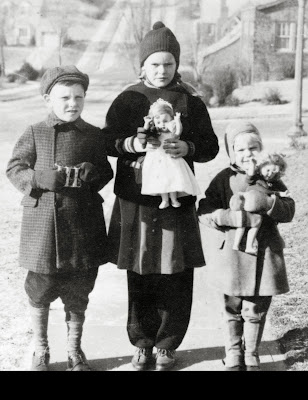On the morning of Sept. 11, 2001, Jacob Brooks was a student at Dundalk Community College in Baltimore.
The events of that day were about to change his life, and the lives of many thousands of other patriotic young men and women who would enlist as a result of the Sept. 11 attacks, forever.
More than a decade later, Brooks, now a Germanna Community College student, like thousands of other vets, is struggling to make the transition back to civilian life and playing catchup with friends who chose not to serve in the military.
 |
| Jacob Brooks |
“When 9/11 went down, I took it very personally,” he says. “I decided to enlist. It was the fastest route to get where I wanted to go, which was overseas.”
His father, grandfather and great uncle had served in the military, but “I was never interested till 9/11.”
He was disappointed when he was initially assigned to a mechanized unit, where he spent his first three years in the Army. “I wanted to be in the light infantry,” the Spotsylvania County resident says.
Brooks eventually got his wish, at one point serving four months attached to 1st Platoon, B Company, 1-502nd Infantry Battalion of the Army’s 101st Airborne Division-- the unit about which Time International and Time.com editor Jim Frederick wrote the book “Blackhearts: One Platoon’s Descent into Madness in Iraq’s Triangle of Death.”
“Now you have a volunteer Army,” Brooks says. In past wars, he notes, soldiers “usually served one tour and that was it.” Because there is no longer a draft, he says, “Now you go back again and again, serving forty-some months in combat. Now guys are making a lifetime of combat.”
Brooks suffered concussions in improvised explosive device blasts and a number of other wounds and injuries in Iraq. The ligaments in both hands were torn in a fall during combat seven years ago. He’s 31 years old and he’s in near constant pain.
“I see pictures of my buddies missing two legs and an arm on Facebook and looking happy as a bird,” he says. “What do I have to complain about?”
Still, he admits leaving the military and making the adjustment to civilian life and college hasn’t been easy.
“That freedom is a blessing and a curse for them,” says Bob Dixon, Germanna’s first Veterans Support Counselor, who was an Army artillery officer during the Gulf War and served in Afghanistan.
It’s strange to be outside the structured, demanding environment of the military. It’s even stranger to be sitting in a classroom next to teenagers just out of high school, some of whom are texting on the phones during lectures.
“He was on the upside of almost being a lifer and his life took this turn,” Dixon says. “Suddenly, he finds himself pushed out.
“You’re RG III and you blew your leg out,” Dixon says, drawing an analogy to Washington Redskins quarterback Robert Griffin III. “There are physical wounds and emotional, social and psychological wounds.”
“In combat, you have a heightened sense of awareness and you can’t replicate that. You can go rock climbing, mountain climbing—you just can’t replicate that.”
“Joy doesn’t even register in my brain,” Brooks says. “Contentment, peace, none of that. A picnic, going to a water park, going to a pool—those things, nah. The toughest thing is that everything seems so dull, so boring. The bar [for excitement] is up here,” he says, holding his hand high.
Dixon says Brooks “really connected” with Germanna English Prof. Cory MacLauchlin.
“Obviously,” MacLauchlin says, “I’m seeing more and more vets coming back to school. Young, battle-scarred, and trying to navigate an academic field that is very different from the world they had come to know.”
Brooks, MacLauchlin says, is in the process of redefining himself and is a talented writer.
“Jacob has a big personality,” the Germanna professor says. “He carries a presence when he walks into a room.”
Brooks completed three combat tours in Iraq, serving in one of the bloodiest parts of that war as a platoon sergeant in charge of 30 troops.
“When you’re in a position like that, your hormones—adrenaline, cortisol get pumped up so you can cope,” he says. “Then the longer you’re back here, the harder it gets. Once you start to look back on it as a normal person, it really is a lot harder. That’s why Vietnam vets have struggled later on. They’re no longer in that mindset” and they still have the memories.
Perhaps without even realizing it, Brooks has been helping others to understand.
“There were points in class when he made me very self-conscious--in a good way,” MacLauchlin says. “ I mean, a year ago, this guy was fighting a war, getting shot at nearly every day, and now he has to listen to me drone on and on about the importance of citation and ways to make your writing ‘flow.’ It was a powerful learning experience for me in that sometimes we need to put what we consider ‘critical’ in perspective with how another person sees the world.”
Dixon says our region is “rife with guys like Jake.” The details are different, but the general story is the same. Germanna and other colleges in Virginia must prepare to help thousands of them make a difficult transition, but one with a potentially huge payoff.
“The veterans are a tremendous resource to society,” Dixon says. “They’re mission-focused, with proven results. They know how to organize resources and people. Why wouldn’t we want to leverage that in the community?”
































